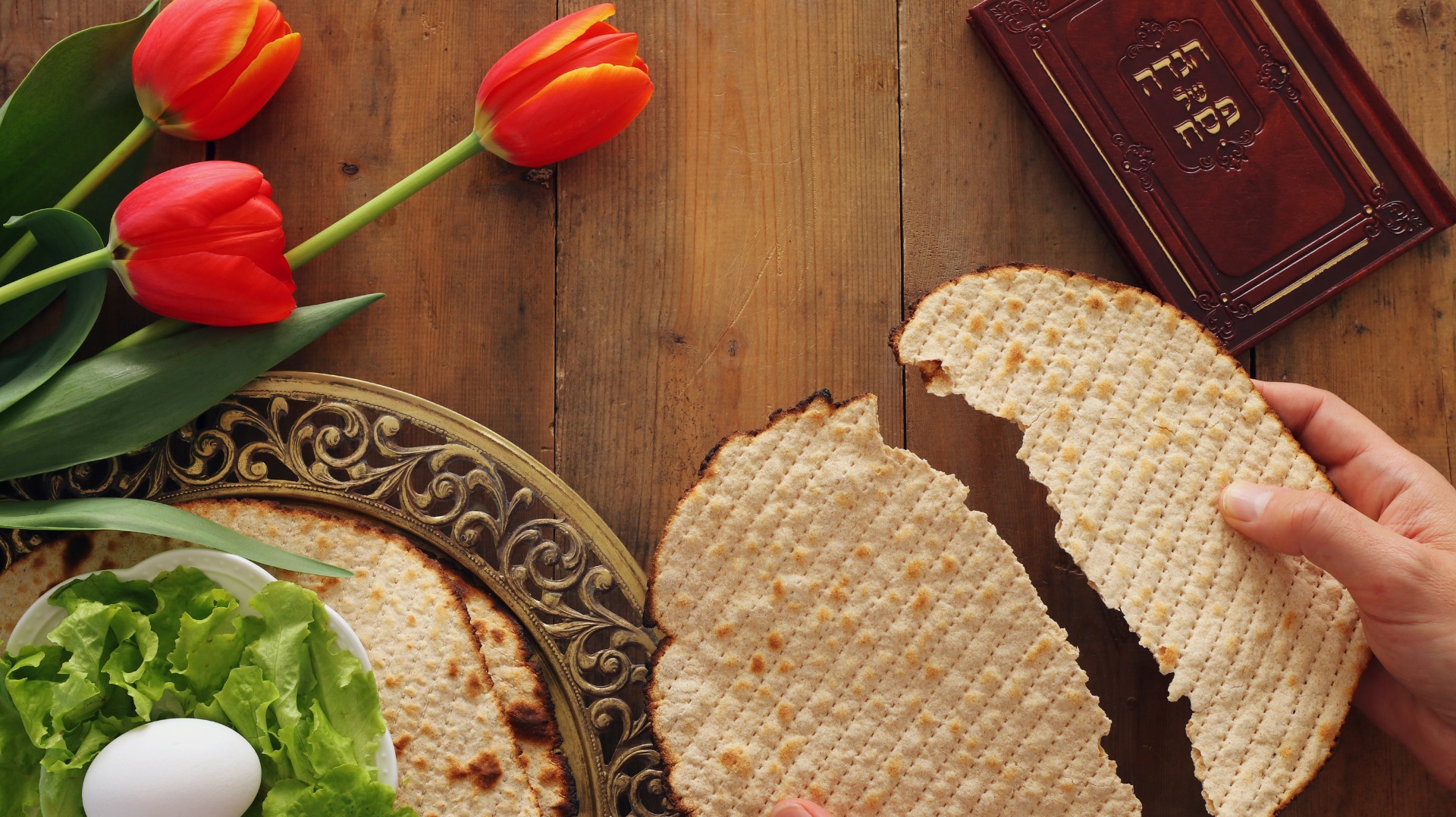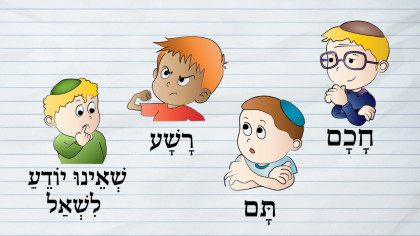When G-d Does Not Want You to Be Frum
How Could Yaakov Marry Two Sisters? When They Cooked Rice on Pesach in Chabad
Vayetzei Women's Class
- November 24, 2020
- |
- 8 Kislev 5781
Rabbi YY Jacobson
1926 views- Comment
- Call-in
Listen to the class on the phone
Call +1 (845) 201-1933
When prompted, dial the ID number below.
7829 MP3 MP4 - Copy Embed
Dedicated by Rebecca Rothstein in memory of Shlomo ben Lipman a''h, and Chasha bas Yeshayahu HaCohen a"h.
Class Summary:
This women's class was presented on Tuesday Parshas Vayetzei, 8 Kislev, 5781, November 24, 2020, live from Rabbi Jacobson's home in Monsey, NY
It is based on an address (a Sicha) delivered by the Lubavitcher Rebbe on Shabbos Parshas Vayeitzei, 10 Kislev, 5766, December 6, 1965, published in Likkutei Sichos vol. 5 Vayeitzei, and it explores the question of how can Yaakov marry two sisters. The class relates the story of the Chafetz Chaim's Sholom Aleichem; Reb Yaakov Kaminetzky not eating gebrakts; when they cooked rice in Chabad for Pesach, and when the Rebbe Rayatz said, "better a red matzah than a red face."
Vayetzei Women's Class
Rabbi YY Jacobson
- November 24, 2020
- |
- 8 Kislev 5781
- |
- 1926 views
Dedicated by Rebecca Rothstein in memory of Shlomo ben Lipman a''h, and Chasha bas Yeshayahu HaCohen a"h.
Classes in this Series
Please help us continue our work
Sign up to receive latest content by Rabbi YY
Join our WhatsApp Community












Please leave your comment below!
Sara -3 years ago
A general question about midrashim
I know they have different perspectives, but often they seem contradictory. So how are we supposed to know which one is the truth? Or maybe that's not the important part of a midrash, that's it's true or not true. Can you explain the purpose of midrashim and whether they are true or not and when they conflict with one another, what should we believe?
Reply to this comment.Flag this comment.
Sara -3 years ago
You stressed the fact that
the relationship between two sisters should not be undermined. And that is one or the main reasons a man should not marry two sisters. The chumra of Yaakov wanting to be strict with his observance, but not when it violated his promise to Rivka, but what about the fact that the Torah said it was asur?
You explained that someone should not be chumra at the expense of another. I understand that, but what about the relationships between the two sisters? That argument of not undermining the relationship between 2 sisters became null and void for the sake of Rivka? What about Leah and what about the relationship between them?
I guess my question is which is more important, keeping a promise or following the mitzvah. As I understood what you said, you and the Rebbe say a promise is more important than being strict for the sake of being strict, but what is more important keeping a promise or not undermining the relationship between the two sisters?
Reply to this comment.Flag this comment.
Sara -3 years ago
Yaakov marrying two sisters was assur
according to Torah. Yaakov knew that, but he did it anyway. The different reasons that the sages came up with for that to be ok are interesting for sure. But also disturbing (at least to me). Ramban said that observing the 613 mitzvot is more obligatory (my words of his words) to be done in Eretz Yisrael than outside of Eretz Israel because the avot were more meticulous to observe them in Eretz Yisrael, but not so much outside?
Shouldn't we all regardless of where we live be observing the mitzvot, not just so that we will be prepared to observe them "correctly" in Israel? It sounds like an excuse not to.
But his explanation was so very interesting, that Rachel dies outside of Israel so that Yaakov could be said to be observing the mitzvot in Eretz Yisrael. A side question, wasn't it also said (in midrash?) that Rachel died outside of Eretz Israel so that the Jews would pass her grave as they traveled into exile and she would be able to pray for them? I'm thinking that both reasons for her passing outside Eretz Israel could be true.
Reply to this comment.Flag this comment.
Sara -3 years ago
You gave a few examples
of how Avraham and Yitzchak "observed" the intent of the 613 mitzvot. Are there no examples of Avraham or Yitzchak not observing "the energy of " any of the 613 (or applicable for those times) mitzvot?
Reply to this comment.Flag this comment.
Sara -3 years ago
GD goes through the list...
until HE gets to Dovid who accepts doing the bracha. Who else was on the list and for what reasons did they decline to do the brahca?
Reply to this comment.Flag this comment.
Sara -3 years ago
Avraham had an Ismael and Yitchak had an Esau, but...
this meal that Gd is serving is AFTER the redemption when Moshiach is here and we, including Esau and Ishmael all are in different states. In addition, both Esau and Ishmael made teshuva at some level in their lives. Ishmael did teshuva and buried Avraham with Yitzchak, and even Esau did teshuva to some extent, so they weren't all bad. And yes, Ishmael's descendants were not so good to the Jews, but again its the time of redemption, and everyone is forgiven, no? So why wouldn't/couldn't Avraham and Yitzchak based on this fact do the Bracha. Also, it was Gd's plan that there would be an Ishmael and an Esau so as to get us to the place we needed to get to in the end.
Reply to this comment.Flag this comment.
Sara -3 years ago
In the very beginning of the shiur,
you said that Avraham, Yitzchak and Yaakov and up through the line of our avot and up to David they all said they couldn't do the Bracha for the meal that Gd will provide when Moshiach comes because a) Avraham and an Ishmael, b) Yitzchak and Esau, 3) Yaakov married two sisters, but that David said he would make the bracha "because it was appropriate for him to do so". On what basis did David think he was worthy of making the Bracha considering the story of him and Batsheba? I know that technically the sages said he didn't do anything wrong, but he himself thought that he did. So is there a midrash or explanation as to why he thought he was worthy?
Reply to this comment.Flag this comment.
yaakov -3 years ago
Reply to this comment.Flag this comment.
susie grama -3 years ago
Question for Rabbi YY
Reply to this comment.Flag this comment.
Reina Esther -3 years ago
Question for Rabbi YY
Reply to this comment.Flag this comment.